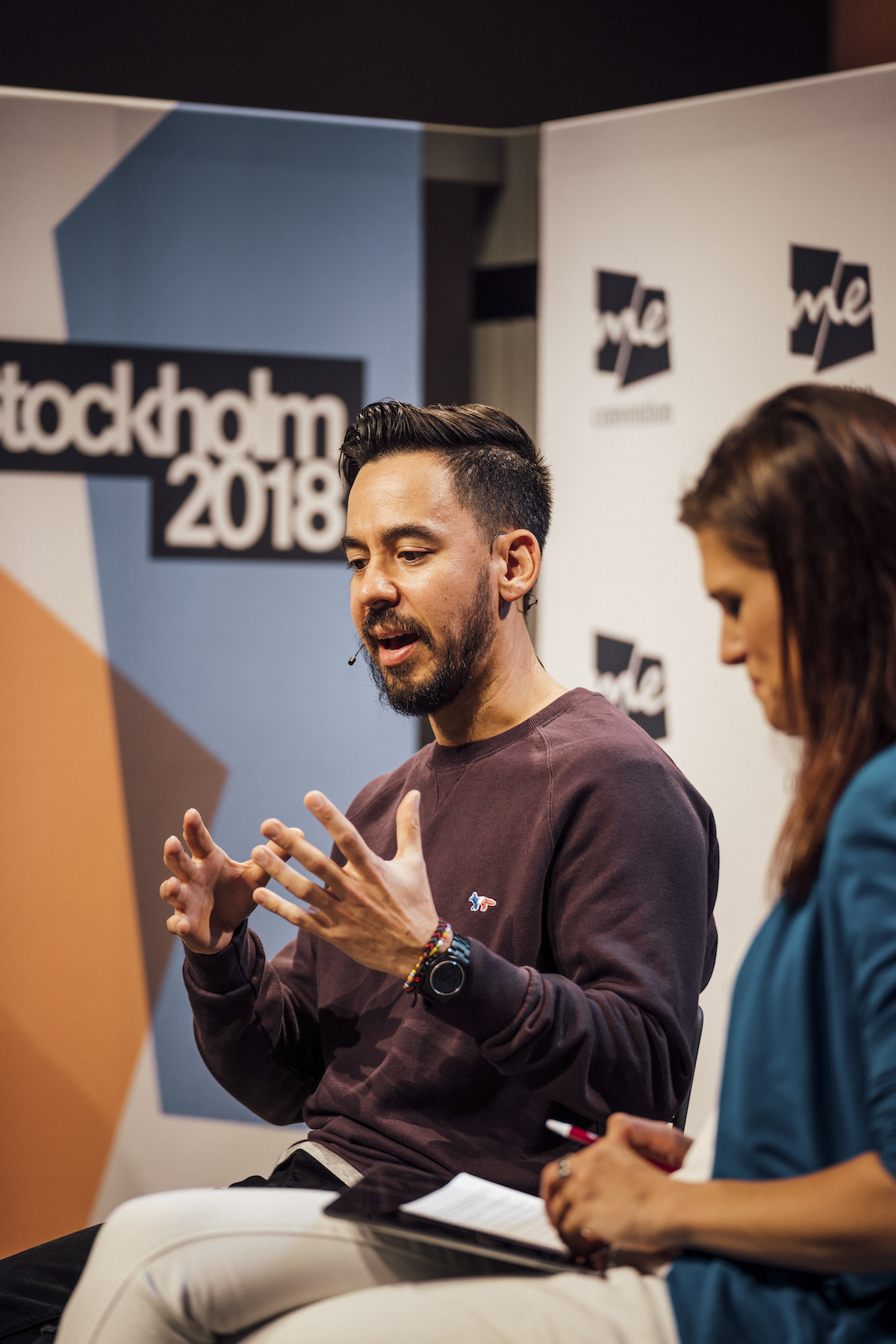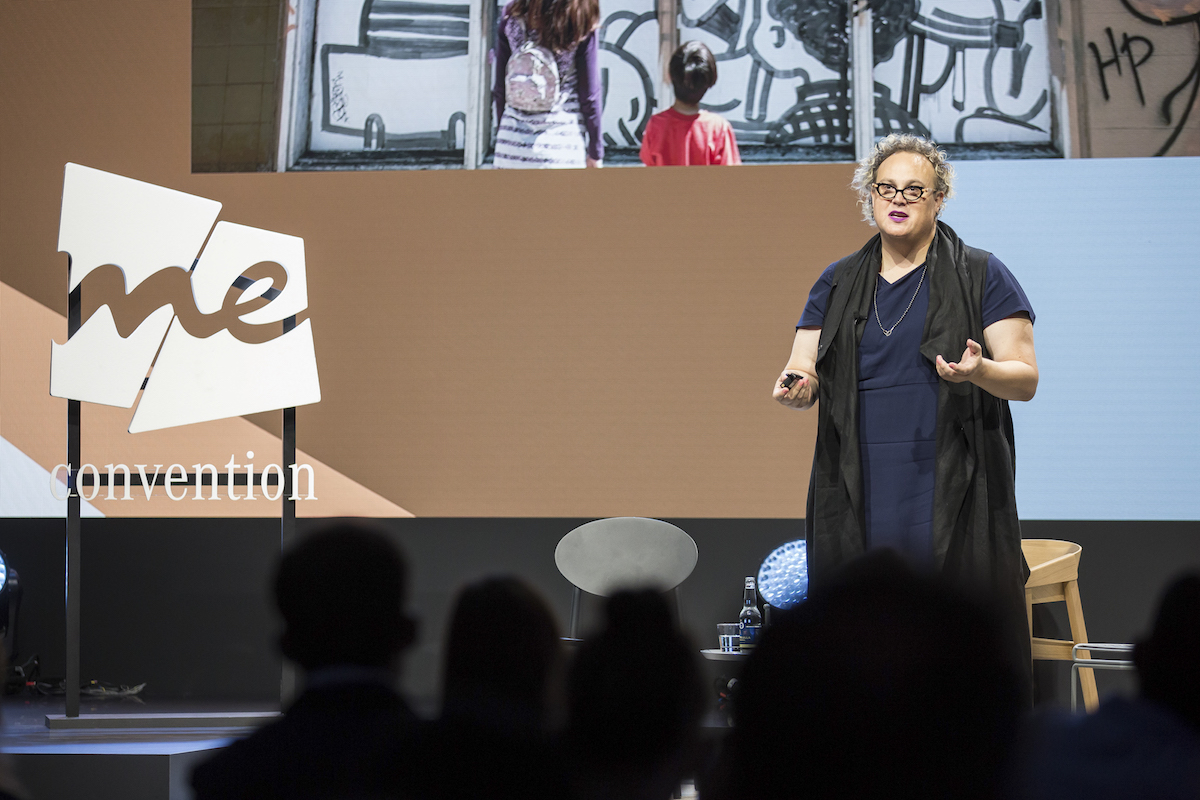Highlights from SXSW’s me Convention in Stockholm

More than 2,000 attendees and 100 speakers from 30 different countries gathered in Stockholm in September for the second incarnation of me Convention. The Convention is a collaboration between Mercedes-Benz and South by Southwest (SXSW) and offers a dive into the future, under the motif #createthenew.

The event brings together creative minds from around the world and across multiple disciplines – including artists, executives, tech visionaries, musicians, entrepreneurs and scientists – to talk leadership, technology, creativity and the future, "to shape the world of tomorrow".
A key theme was the relationship between humanity and technology.
The conference saw the likes of Linkin Park’s Mike Shinoda and ABBA’s Björn Ulvaeus discussing creativity and new tech alongside esteemed scientists, leading executives and successful entrepreneurs.
As well as an incredible keynote speaker line-up, the three-day event featured an entertaining and immersive schedule, with everything from art installations to VR demonstrations, and from mentor sessions to workshops.
Come evening time, there were parties, with live music from artists such as Grammy-winning St. Vincent, and a film premiere of More Human Than Human, which explores life in the age of intelligent machines.
During the event, Mercedes-Benz also fully revealed its Tesla rival, EQC electric SUV, which will begin production in 2019.
Here are some of the highlights; what we learned, what got us thinking and what we loved.
The three-day event kicked off with an exploration day – where guests could explore various routes around Stockholm city depending on their interests, from art and architecture to the tech start-up scene.
-
Ana Arriola, Partner, Design Director for AI/research & Bing, Microsoft on designing technology with humanity in mind.
"It’s at these intersections of machine learning, ethics and design that we need to culminate the holistic experience. I believe that we need to be sure we’re open. That’s not just openness in the design studio but with our stakeholders, data scientists, neuroscientists and engineers. The efforts should be people-centric."
 Ana Arriola
Ana ArriolaThe intersections of machine learning, user research and design need to pull on the heart strings to still delight people, she says.
-
The art to successful negotiation with CEO, author and negotiation expert Chris Voss.
"You want people to say ‘that’s right’, not ‘yes’. There’s a big difference," he explained. "Everybody you deal with regardless of the outcome should feel so respected that even when you’re done they would work with you again. ‘I feel respected and treated well and appreciated’ – that’s how anyone should feel in any interaction with you."
Tom London began hacking at age 15 and even hacked into his school system. He spoke about ethical hacking, the magic of technology, and smartphones as a creative platform. And Tom literally hacked into everyone’s mobile phones during the session before revealing his secret, adding that basically, "everything is possible if you can code. Every one of you should learn it."
-
Prepare for a new era of mobility as the auto industry is disrupted.
The role of the automobile is set to change once automated driving is in full swing.
Ola Källenius, Board Member of Daimler AG for Mercedes-Benz Cars Development said we can expect cars to become the ‘third space’ alongside homes and offices in 2020–30. As such, the interior design of cars will have more importance, and the ‘cool stuff’ will be happening inside.
-
Mark Adams, Vice President & Head of Innovation, VICE Media on ‘extreme innovation’: "The opportunities are huge.
If we can get away from emails, away from running after the latest gimmick, you can start to innovate."
How did Vice do it? "By rejecting everything that had already been done before."
He also spoke of our attraction to new, gimmicky technology, likening it to young children chasing after a ball. We all follow the ‘ball’… whatever new, fun bit of technology, we tend to drop everything and chase after it, he said. "Pay attention to culture not technology."
-
Work–life balance is probably more important than we realised.
Alexandra Weyrich is a research scientist at Berlin’s Leibniz Institute for Zoo and Wildlife Research who is studying epigenetics. Her work suggests that what we do in our life alters our DNA. If you have a stressful life, for example, that trauma gets passed on.
-
We have to get more conscious about unconscious bias in technology.
If we don’t, then the diversity issues of today will be continued in the tech of the future; a problematic message reiterated by a number of speakers. Stephanie Lampkin is one US start-up founder tackling the issue with her app Blendoor, which uses tech to fix unconscious bias in the hiring process.
From facial recognition and the way our data is tracked (and what happens to it once we pass away) to policing and robotics, AI was a big topic that threw up more questions than answers.
-
And for a bit of fun, we also loved experiencing flight through the Brazilian Amazon from the perspective of a bat, thanks to the Red Dot Award-winning VR installation Inside Tumucumaque.
It was created with the help of a team of documentary filmmakers, and also featured perspectives of other Amazonian animals such as caiman and frogs.
For full-lengths talks and more, visit the me Convention video archive.